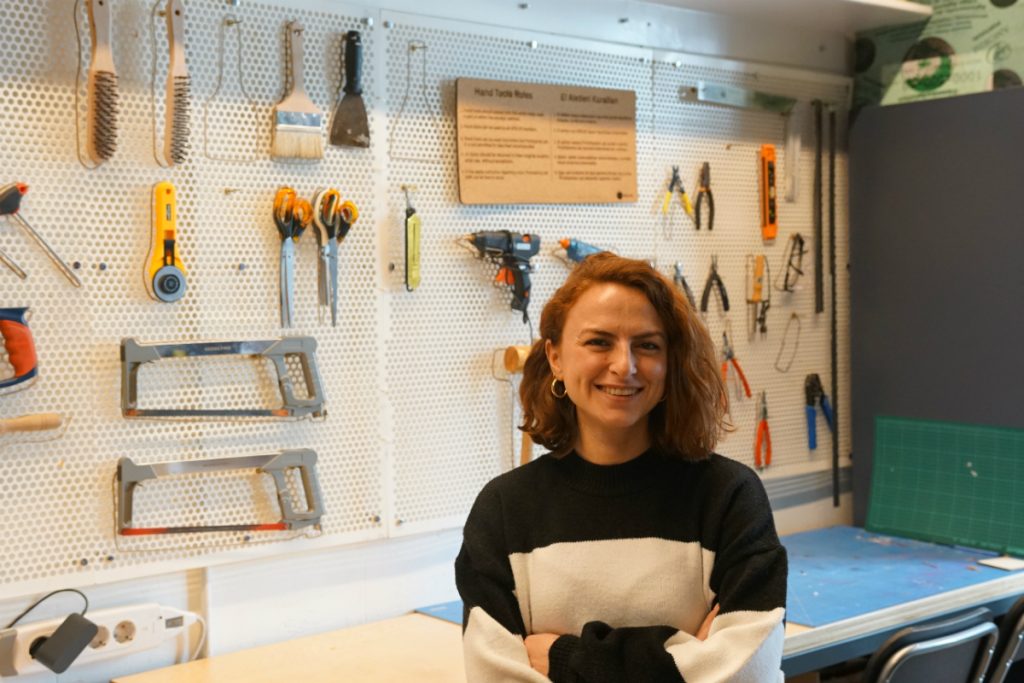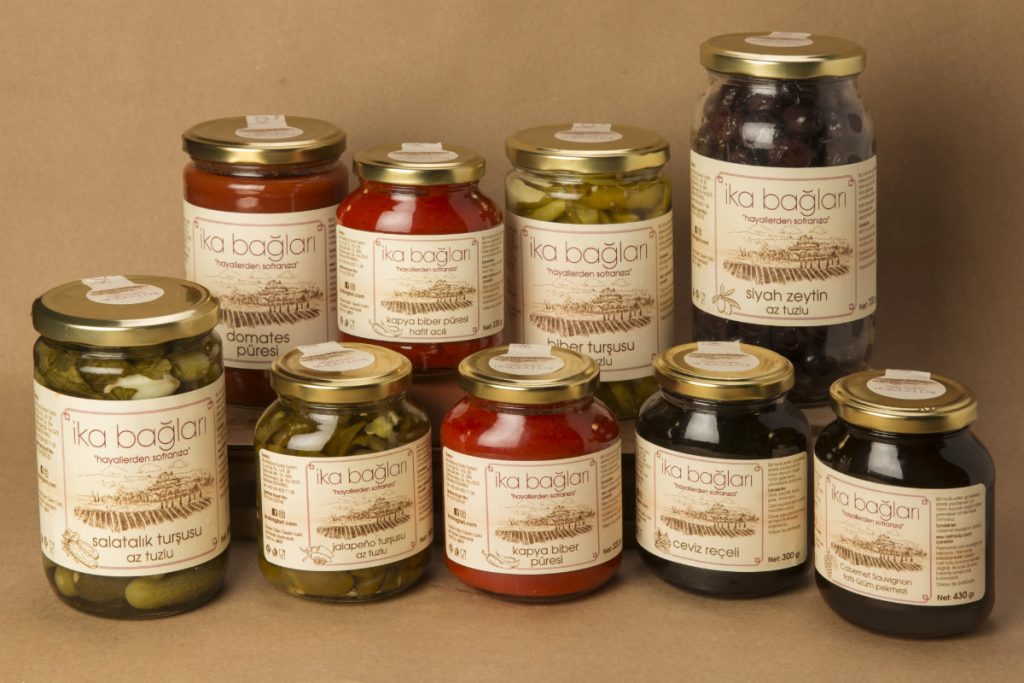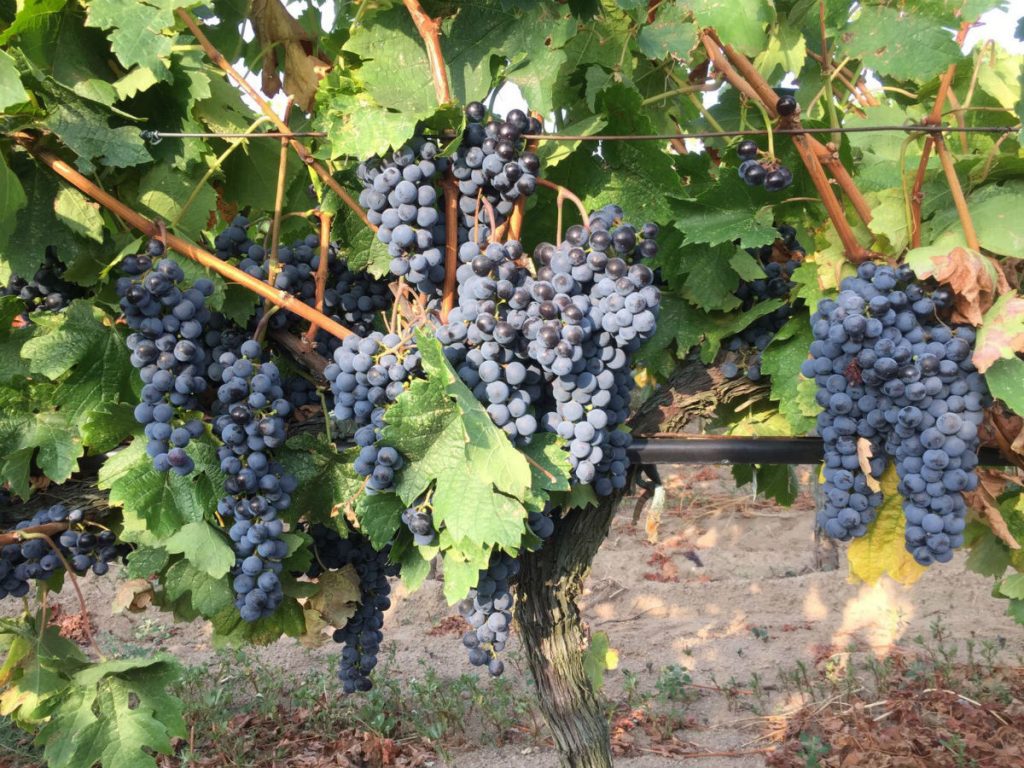Our fondest childhood memories often involve nature – the fresh air, green spaces, and instinctual connection to the planet we call home. Despite this nostalgic pull, living in a city like Istanbul can often anchor us here and thus relegate our time in nature to brief holiday getaways. Merve Bayram however has broken free, taking her experience in the business, arts & culture, and fashion sectors and applying that knowledge to uncharted territory by founding her own brand – İka Bağları. Nestled between two remote villages in Northwestern Turkey, lies the family farm that is the lifeblood of the İka Bağları project – offering a variety of quality, natural, and traditionally made products to the discerning consumer. By diving in headfirst, Merve has taken on many roles in every aspect of her business, but none better tell her story than that of a student: taking lessons from villagers who have spent their lives farming, learning to navigate the complex bureaucracy of the agricultural sector, understanding and preparing for production cycles dictated by strict scheduling, and of course gaining insight from the most humbling teacher of all – Mother Nature. Through it all, Merve maintains an upbeat perspective, staying true to her values with a deep commitment to sustainability and positive environmental practices, and a desire to share the natural world with those around her. While it still may be relatively early days in the life of İka Bağları, it’s clear that there’s plenty of love and dedication here to grow something beautiful.
We took some time to speak with Merve on her transition from a classic nine-to-five position to stepping outside her comfort zone in founding an agriculture-based brand, the complexities of working in an increasingly challenging sector, balancing the many roles therein, and of course the exciting future that lays ahead for İka Bağları.

Could you tell us a little bit about yourself?
Sure! I graduated from Marmara University with a focus on French teaching – which I was interested in until my senior year. I then decided I wanted to do something related to arts and culture, so I started working at festivals as a volunteer, such as !f Independent Film Festival and others. Soon after, I started working at Istanbul Foundation for Culture and Arts. I worked as a guide at the festivals, then transitioned to the office in a full-time role in hospitality. I then started working with Otto Restaurants around 2010. At that time there were around four restaurants and it was really busy – I was scheduling events, working in production and communications, and as we were a small team, I was doing a bit of everything. After Otto, I returned to IKSV in the marketing department. I was taking care of marketing communications in regards to festivals and all that. Then after Gezi and that period, it became less fun and more difficult to do arts and culture in Istanbul. So I switched focus and made my way to Vogue magazine. I was a fashion coordinator there and working on production operations. It was really stressful and as you can imagine it was very different from the humanist perspective of the arts and culture field.
Aside from my professional life, I have always been interested in nature. We have a summer house in Assos on the Aegean side of Turkey. My family is into farming, although not professionally, and I was never too far from the idea of producing my own stuff. We have been producing our own olive oil for many years now. So I was always into the idea of working around agriculture. I consider myself lucky that I met my husband whose family happens to own a farm and a vineyard. My father-in-law, along with his family, have maintained it until his passing and his son – my husband – took it over to continue the family tradition. That pretty much brings us to today.
What was the inspiration behind your transition to working on İka Bağları?
It’s a funny story and here I was lucky again. When I was a little girl, we used to go to Bozcaada which is really famous for its vineyards and grapes. My family and I went there almost every summer. I was always really excited for those trips. So when I met Uğur, my husband, and found out he was producing wine as a hobby, I had a chance to experience it for myself. The first time I experienced grape harvesting and wine making, it was like an enlightenment. I felt so connected to the nature and soil. At that time I was working for Vogue and it was really so different… I felt like I should be doing something physical and not working the normal 9 to 5.
At the time, the idea of İka Bağları existed – so I spoke with his family about transitioning to make it a national brand. After my father-in-law passed away, in order to honor our family legacy, we decided we should give it a meaningful try and share it with people. It was a new thing for me at the time.
So I quit my job and took KOSGEB courses, founded the brand, and so forth. I was outside my comfort zone. I worked with the families in the village – as they are the farmers and they know everything on the agriculture side. I became their student and started the brand around a year and a half ago. We’ve been sharing our passion with our loved ones and those that know of the brand ever since.

Could you also tell us a bit about the meaning behind the name?
Actually, there’s another funny story here. The vineyards are located between two villages, our village Çukurcak and the neighboring village Semizkoy. So it’s the abbreviation for “İki Köy Arasında” – “in between two villages” in Turkish. Everybody was getting used to the name and calling it İka. It also resembles the name of my late father-in-law, Ilkay, so we thought that we should keep the name and keep his legacy too.
What is it like working with your family on a business like this?
Actually, it has brought my husband and I closer. Although it seems like a family business, I’m the only one involved in all the aspects. [Laughter.] It’s a family business, they own the land and have experience on the agriculture side, and I was the crazy one who suggested we make it a business. Of course, my mother-in-law and husband always help with the events and sales, but I’m the only one in the operations, marketing, and sales functions. Of course, it wouldn’t be possible without our team back in the farm. They have the knowledge of the soil, nature, cycles, and so forth. I am grateful to be working with people who share a vision and passion with us.
The village is really small by the way. It’s 58 people – 36 women and 22 men. The average age is around 60. The young have migrated to bigger cities to find jobs. Agriculture is really hard and there aren’t many who have stayed.
How far is the village from Istanbul?
By car, it takes three and a half hours to get there. It’s around Balıkesir, but an hour and a half away from the city center there. So it’s really far from the city and all the opportunities one would find there.
How hard is it for you in your role considering you live in Istanbul?
So, actually it’s a 12-month process. Every month I go to the village at least once. We largely produce summer fruits and vegetables, so I start to go more often to the village around May, almost weekly. That’s when we produce the walnut jam. In the summer, it gets busier and busier. Around September and October, it’s peak time, so I stay at the village for almost two months, for the harvest and food production. Then I return to Istanbul and we transfer the goods to our warehouse. Then I focus on sales, marketing, and communications. That’s why I call it a 12-month process. In the winter you begin planning for the next year. In very simplified terms, you plant the seeds and begin the cycle all over again.
Could you share a bit about the various products you offer?
At the moment we have 10 products including tomato sauce, a red capia pepper sauce (spicy and non-spicy), walnut jam, Cabernet Sauvignon grape molasses, three kinds of pickles, linden, and black olives. We’re also looking into developing new products later in the year.

Where do you sell the products?
Our website is under construction, so right now I’m focused on finding locations that sell natural or organic products and working with them.
Our products are really traditional – clean and healthy with no preservatives or additives. The way we prepare them is also traditional, for example we cook them on wood fire. It’s a boutique production and every year the quantity of production will vary depending on how the year turned out. You’ll never know what you’ll get. For example this year we planned on 500 bottles of walnut jam, but the trees only offered 300. You can’t compete with nature, so we have to respect, adapt and work with what is given to us. It is a very humbling process accepting you can’t be in control at all times.
How does ATÖLYE fit in?
ATÖLYE is one of a kind place. As my business is so new, I always need feedback from folks around me to make progress with my brand and products. With the exponential networking opportunities here, you never know who you’ll meet. There are so many intelligent people here all with businesses that inspire me.
I did a feedback session and shared the story of İka Bağları with my peers at ATÖLYE. There was a tasting, I served wine and some of our products, and received feedback from people. It is important for me to be surrounded by like-minded people and to have a chance to also give back to the community. It’s the right place for me to be right now.
What are some of the bigger challenges in this field?
The biggest challenge is that I’m still very much a student and new to agriculture and producing and marketing food products like this. For example, I want to convert the farm to be more sustainable. So I’m learning about sustainable agricultural practices. We are investing in transitioning the farm, as it wasn’t started to be that way. For example we installed a %100 solar powered irrigation system last year and finished our dependency on sources of energy produced by fossil fuels. I’m also trying to learn new methods of agriculture.
Another big challenge is obviously climate change. We are doing everything we can to contribute to the cause but it is really a collective mind issue. I wish I could do more about it. Even the wise families living on the farm now who have been working in agriculture since they were children and can predict the weather just from the air’s smell… even they can’t predict anything. It’s really worrisome. We do a schedule for the whole year and for example, last year we had to collect the grapes one month ahead of schedule. When you don’t use chemical solutions, the operation becomes more prone to diseases due to the changes in the rain schedule or fluctuations in temperatures.
Another area is finding the right government incentives. We are trying to invest in the farm but because the brand is so new, we’re hardly breaking even. We have to have incentives and the process of doing the projects and receiving funds can be tough but we have to persevere.
Of course, the rising production costs and last year’s unexpected shift in the exchange rates, have also been a big challenge.
So if I’m hearing about this for the first time and I’m interested in trying a product out or connecting with you, what’s the best way?
We do marketing communications via our social media accounts. People can order through those accounts. We also have 19 sales locations around Turkey. People can check our Instagram account to see our sales locations on our profile page thumbnails.
Any big plans in the months ahead? What’s next for İka Bağları?
So right now we’re looking at the IPARD incentives. Hopefully they will announce an incentive for value added agricultural products and micro-enterprises in Balıkesir. If we can manage to have that funding and opportunity, we will expand and establish a larger production facility. Right now we don’t have enough capacity to produce more products and grow our business.
We also have a walnut orchard investment at the village. We are continuously expanding that. Our most popular and unique product is walnut jam. We have plans to establish an import company in Europe and export that particular product. Hopefully it’ll turn out as we hope.
Finally, I really want to share my experiences with everyone. When I’m harvesting the grapes for examples, a lot of my friends come to experience it with us. It’s fun and energetic, and I really love that feeling. I want to expand on that and share with more people.
Of course, I also hope to improve on our home wine making. Our first batch wasn’t very good a few years ago! [Laughter.] But we’ve gotten a lot better and it’s good right now, but we still want to perfect it.

As we’re a publication for foreigners, any final words of advice or places to visit for people looking to make the most out of their time here in Istanbul?
Istanbul is becoming more crowded every day. So I try to get out as often as possible and avoid the crowds. We really like walking and jogging, so often on the weekends we go to Belgrade forest for a picnic or running. We also do other sports – like this year I plan to do rowing on the Golden Horn. Many of my friends have done a course. In the summer evenings, I hear it’s a magical experience. So I encourage everyone to be part of a group and do some group sports.
To keep up with Merve and her work, keep an eye on the official page for İka Bağları. You can also follow via Facebook and Instagram.
ATÖLYE Spotlight is our series on the inspiring community members of Istanbul’s most creative space.
All images courtesy of the interviewee.









